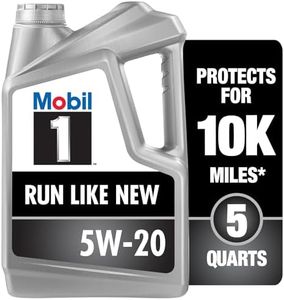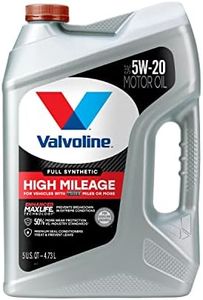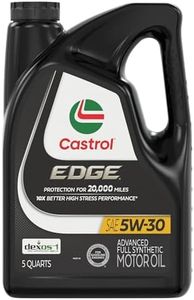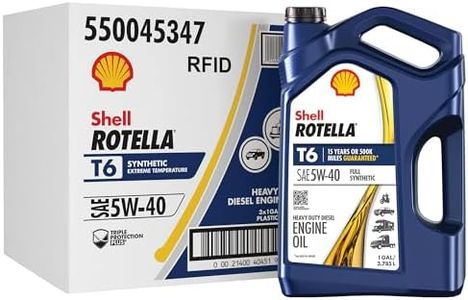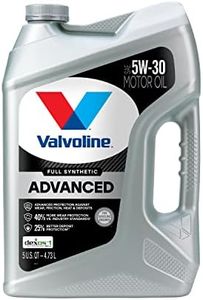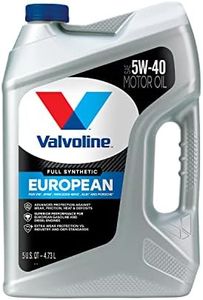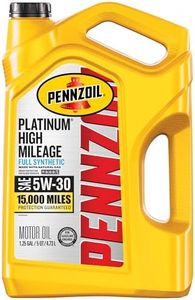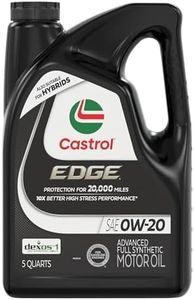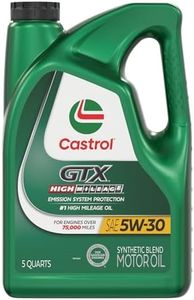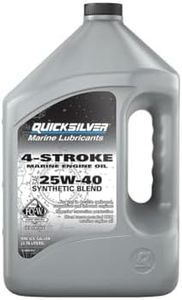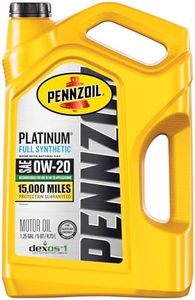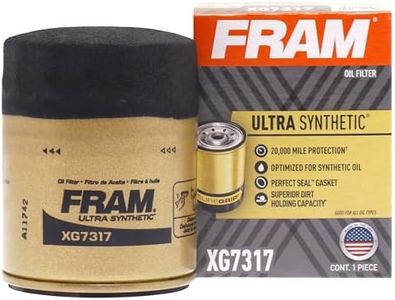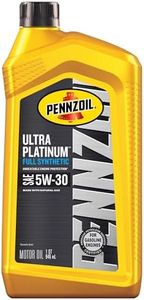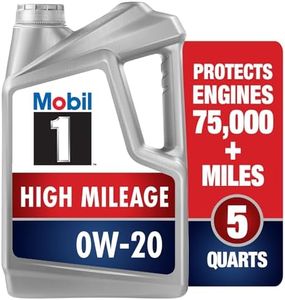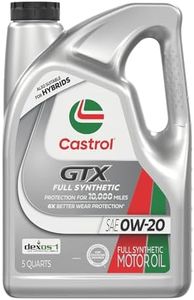We Use CookiesWe use cookies to enhance the security, performance,
functionality and for analytical and promotional activities. By continuing to browse this site you
are agreeing to our privacy policy
10 Best Synthetic Engine Oils 2025 in the United States
How do we rank products for you?
Our technology thoroughly searches through the online shopping world, reviewing hundreds of sites. We then process and analyze this information, updating in real-time to bring you the latest top-rated products. This way, you always get the best and most current options available.

Buying Guide for the Best Synthetic Engine Oils
Choosing the right synthetic engine oil for your vehicle is crucial for maintaining engine performance, longevity, and efficiency. Synthetic oils are designed to provide better protection and performance compared to conventional oils. When selecting a synthetic engine oil, it's important to understand the key specifications and how they relate to your vehicle's needs. This guide will help you navigate through the essential specs to make an informed decision.Viscosity GradeViscosity grade refers to the thickness of the oil and its ability to flow at different temperatures. It's important because it affects how well the oil can protect your engine under various operating conditions. Viscosity grades are usually represented by a combination of numbers and letters, such as 5W-30. The first number (with the 'W' for winter) indicates the oil's flow at cold temperatures, while the second number indicates its flow at normal engine operating temperatures. For colder climates, a lower first number (like 0W or 5W) is better, while for hotter climates, a higher second number (like 30 or 40) is preferable. Choose a viscosity grade that matches your vehicle manufacturer's recommendations and the climate you drive in.
API RatingThe American Petroleum Institute (API) rating indicates the quality and performance standards of the oil. This rating is important because it ensures the oil meets specific requirements for engine protection and efficiency. API ratings are denoted by two letters, such as SN or SP. The first letter 'S' stands for service (for gasoline engines), and the second letter indicates the oil's performance level, with later letters in the alphabet representing more recent and higher standards. Always choose an oil with an API rating that meets or exceeds your vehicle manufacturer's specifications.
AdditivesAdditives are chemical compounds added to synthetic oils to enhance their performance. They are important because they can improve the oil's ability to protect the engine, reduce wear, prevent corrosion, and keep the engine clean. Common additives include detergents, dispersants, anti-wear agents, and antioxidants. When choosing an oil, look for one with additives that match your driving conditions and engine requirements. For example, if you drive in stop-and-go traffic, an oil with strong anti-wear additives might be beneficial.
Synthetic Blend vs. Full SyntheticSynthetic blend oils are a mixture of synthetic and conventional base oils, while full synthetic oils are made entirely from synthetic base oils. This distinction is important because full synthetic oils generally offer better performance, protection, and longevity compared to synthetic blends. However, synthetic blends can be a good middle ground for those looking for some benefits of synthetic oil at a lower cost. Choose full synthetic oil if you want the highest level of engine protection and performance, especially if you drive in extreme conditions or have a high-performance vehicle. A synthetic blend might be sufficient for less demanding driving conditions.
OEM RecommendationsOriginal Equipment Manufacturer (OEM) recommendations are the guidelines provided by your vehicle's manufacturer regarding the best type of oil to use. These recommendations are important because they are based on extensive testing and are designed to ensure optimal engine performance and longevity. Always refer to your vehicle's owner's manual to find the recommended oil specifications, including viscosity grade, API rating, and any specific requirements. Following OEM recommendations helps maintain your vehicle's warranty and ensures you are using the best oil for your engine.
Most Popular Categories Right Now


